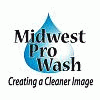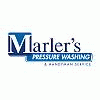-
Content count
996 -
Joined
-
Last visited
-
Days Won
1
Single Status Update
-
barry, chris from apple, here is some good stuff for your web site maybe ?
By MICHAEL SASSO The Tampa Tribune
Published: June 2, 2008
Related Links
NEW PORT RICHEY - Tired of the nagging letters from your neighborhood homeowners association, the threats of liens on your home?
Before you ignore the association, consider the fate of Gregory Green.
More than three years ago, Green's body seemed to be falling apart. Overweight, he suffered two blood clots in his lung, then he needed surgery for a back injury, then he was diagnosed with diabetes. On his doctor's advice, he left his job at an Alzheimer's care center in Tampa and began collecting disability benefits, which were about half his previous salary and put a strain on his family's finances, Green says.
By 2005, the family of five had fallen behind on dues to the homeowners association of The Glen at River Ridge, which represents about 150 homes in a west Pasco County subdivision. The result: In September, the homeowners association foreclosed on the house for owing $580.
"These are neighbors," Green said of the board of directors of the homeowners association. "Neighbors are supposed to be compassionate."
The Greens' story isn't the norm for association disputes, but foreclosures that end with the sale of a debtor's home have become surprisingly common in the Bay area and throughout Florida, according to two lawyers who represent hundreds of homeowners and condo associations between them, Bob Tankel of Dunedin and Ron Cotterill of Tampa. Tankel estimates such cases have increased tenfold in the past four years, based on his firm's caseload.
In many situations, homeowners are losing their properties over a few hundred dollars in delinquent homeowners assessments.
What's more, Tankel said he's advising his homeowners association clients to foreclose quickly, before the lender does. A homeowners association lien is inferior to a claim brought by a lender holding the mortgage, Tankel said. So if a bank files first, the association may not be able to collect the back dues.
"We're always in a race to the courthouse steps," Tankel said.
Foreclosing on someone's home may sound ruthless - Tankel prefers "aggressive" - but lawyers who represent homeowners associations insist the organizations are victims of the foreclosure mess in Florida.
Across the state, a record number of mortgage foreclosures have left many deed-restricted neighborhoods dotted with vacant homes. For financially distressed homeowners who still own their homes, paying association dues is often a low priority, Tankel said. Tankel, who said he represents as many as 600 homeowners and condo associations in Florida, has watched his collections business increase by 500 percent over the past four years.
Homeowners associations must provide drainage or landscaping in their communities as less money comes in. Homeowners who pay often face special assessments to make up for those who fail to pay, Tankel said.
Foreclosure lawyers are unsympathetic figures for many people, and Tankel jokes that he's occasionally thought of as Snidely Whiplash, the mustachioed, top-hatted villain in the old "Dudley Do-Right" cartoons.
"Am I ruthless, or am I protecting the interests of people who pay?" asked Tankel.
Most Owe Relatively Little
It's unclear how often associations force homes to be auctioned at the courthouse because local court clerks don't differentiate between foreclosure sales brought by homeowners associations and those brought by lenders.
Anecdotal evidence suggests that the number is relatively small, and most lawsuits brought by associations settle before reaching a sale at the courthouse. Nonetheless, the number has grown exponentially. A few years ago, perhaps one in every 3,000 association collection actions resulted in the sale of the person's house. Today, Tankel estimates the rate is one per 300 cases. Recently, he's been overseeing about three such foreclosure sales per month.
Cotterill estimated he's shepherding three to 10 cases per month to foreclosure sales.
"For lack of a better word, the increase has been dramatic over time," Cotterill said. "I don't know if it's reached its peak yet."
Aside from The Glen at River Ridge homeowners association, others that have foreclosed on homes recently include: Westchase Community Association, which recently foreclosed on at least two homes, according to court records; FishHawk Ranch Homeowners Association; Hyde Park Place II Condominium Association in Tampa; and Charleston Corners Property Owners Association in Lutz.
Both Tankel and Cotterill say they are stumped about why so many people are willing to surrender their homes for so little in delinquent dues. Tankel said the typical association foreclosure case involves less than $1,000 in delinquent homeowners assessments.
Some of the debtors are investors who have little equity in the homes and are willing to walk away from a bad investment, Cotterill said. However, in some cases, such as the Greens', the delinquent homeowners are living in the homes. Cotterill said people don't realize that homeowners associations have the power to foreclose, so they ignore warning letters.
Florida law grants four entities the power to foreclose: mortgage holders, such as banks and the investment companies that purchase packages of loans; the IRS; contractors who can foreclose on construction liens; and homeowners associations.
If homeowners associations decide to foreclose, time is critical, Tankel said. They need to seek foreclosure quickly before the value of the homes falls further and before banks foreclose, he said.
"Because of the real estate crisis, I have suggested that clients not give homeowners so much time and so many letters," Tankel said.
Playing Hardball
Those kinds of hardball tactics have raised critics of homeowners associations and the lawyers they employ.
Jan Bergemann runs a DeLand-based watchdog group called Cyber Citizens for Justice, which is pushing for reform of Florida's homeowners association laws. Among his demands is that associations provide more notice to homeowners of the potential filing of a lien, without accruing attorney fees billable to the homeowner.
Bergemann faults many lawyers for taking the side of homeowners and condo association boards, rather than considering the interest of all of the association's members, including delinquent homeowners.
Often, the legal fees - especially in a foreclosure case - far exceed the association dues owed, he said. Several foreclosure cases the Tribune reviewed involved legal fees billed at a rate of $200 or more per hour, as well as paralegal fees of $95 an hour.
Foreclosure "causes hardship," Bergemann said. "It causes problems, and if a family has a problem paying $250 or whatever's at stake, they definitely have a problem when Tankel adds $800" in legal fees.
In New Port Richey, the Greens fell behind in their association dues and were quickly swamped by mounting court costs and attorney fees. The family consists of Gregory, 50, his wife, Patricia, 55, a 16-year-old daughter, Cherylin, and two adult sons, Jason and Aaron.
After notifying the family of the delinquency, the homeowners association board placed a lien on the house for $264 in November 2006, court records show. Their debt eventually grew to $580 in back dues.
Patricia Green said her homeowners association's board and its president, Jack Alwood, refused to negotiate with the family.
"They wouldn't take payments," she said. "They wouldn't work with us. They wanted a lump sum."
The association's attorney, Michael Brudny of Oldsmar, also would not return the family's calls seeking to work out a payment plan, the Greens said.
"They'd Brudny's office take messages and messages and nobody would ever call back," Gregory Green said.
Brudny wouldn't comment specifically on the Greens' case, preferring to speak generally about homeowners association foreclosures. However, he denied that his office failed to return the Greens' calls, and said his office wants to work out things with delinquent homeowners. Unfortunately, in the Greens' case, they were unable to make payments, he said.
In April 2007, The Glen at River Ridge association filed a foreclosure lawsuit against the family in Pasco County court. The case resulted in a summary judgment against the Greens in August for a total of $3,781. Only $580 was for the back dues the family owed. An additional $2,134 was for attorney fees and $605 was for court costs, among other charges.
Absent a quick payoff of the amount owed, the court set a foreclosure sale for Sept. 26. That day, the association purchased the home at the courthouse for $100, a typical low offer for a home with only one bidder and little or no equity beyond what's owed to the mortgage company. The Greens moved to a rental home four miles away.
Alwood, the association president, said the Greens' case was unfortunate, but the family consistently failed to pay their homeowners dues over three years. The family didn't respond to the association's letters, Alwood said.
"They just stonewalled; Gregory Green just would not respond," he said.
Eventually, the homeowners association tried to sell the property but was unable to. The association board decided against making the mortgage payments and the lender took back the home.
Today, Patricia Green notes the irony of the situation: The association foreclosed on her property to remove the Greens, get their delinquent dues and fill the home with someone who would pay the association's dues on time.
"Now the home is sitting empty," she said.
5 STEPS TO A FORECLOSURE OVER HOMEOWNERS GROUP FEES
An old wives' tale holds that homeowners dues in arrears don't need to be paid until the home is sold, at which time the new owner must pay off the debt, said Ron Cotterill, a homeowners association lawyer in Tampa. In reality, associations have the power to foreclose on liens and force the sale of a home.
Florida law lays out a process for starting a foreclosure action:
1. Provide notice of delinquent dues. An association must give a homeowner written notice for past-due assessments and any other amounts owed, and provide the owner with 45 days to make the payment. The association must send the letter by certified or registered mail as well as by first-class U.S. mail.
2. File a lien.
3. Provide notice of intent to foreclose. Again, the association must provide the homeowner with 45 days notice of its intent to foreclose on unpaid dues.
4. Start foreclosure proceedings.
5. Cause a foreclosure sale.
If the association receives a foreclosure judgment against a homeowner, and the owner fails to pay off all money owed, the association can have the home sold at the courthouse. In some cases, the homeowners association buys the home if there are no other bidders.
In recent years, associations have been prohibited from converting fines for such slights as failing to maintain the lawn into liens that can be foreclosed upon. However, legislation passed this year may change that somewhat. Peter Dunbar, a real estate and association law attorney in Tallahassee, said that in the future if the fine exceeds $1,000, the homeowners association may be able to file a lien, which is foreclosable. The legislation has not been signed by the governor, said David Muller, a community association lawyer for the Becker & Poliakoff firm.








